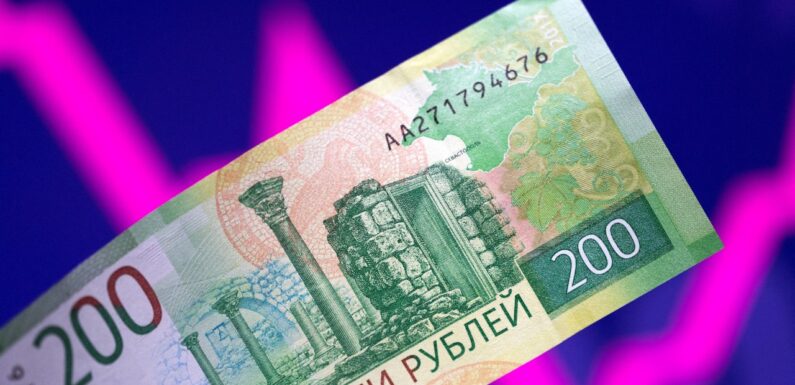
As it scrambles to hold the ruble’s worth back from diving further, Russia’s national bank on Wednesday declared that it is forbidding residents from involving rubles to purchase dollars and other hard monetary forms for the following a half year.
Russia’s national bank, confronted with extraordinary assents and a falling ruble, said Wednesday it was suspending the offer of unfamiliar monetary standards through September.
“Banks won’t offer hard cash to residents during the time of the impermanent request,” the national bank said in an explanation presented on its site after 12 PM Moscow time. The request is to terminate Sept. 9.
Between March 9 and September 9, Russian banks “can not offer unfamiliar monetary forms to residents,” the national bank said in an articulation, adding that it will be feasible to trade cash money for rubles whenever and any sum.
The national bank said it likewise will restrict to $10,000 how much U.S. dollars that clients can pull out from hard-cash accounts at Russian banks. Anybody needing to pull out more than that from a hard-money record should accept the equilibrium in rubles, said the national bank, which is known as the Bank of Russia.
During that window, cash withdrawals from unfamiliar money accounts at Russian banks will be restricted to $10,000. Any withdrawals over that sum would be changed over to rubles at the current trade rates.
The actions are intended to keep Russians from making a run for dollars as the ruble falls to new lows following Western monetary approvals, which have restricted the national bank’s admittance to its hard cash holds.
The bank said clients, all things considered, can in any case get assets from their unfamiliar money stores or records, yet noticed that it might take “a few days” to carry the expected measure of money to a specific branch.
“For standard individuals, the principle effect of these actions is that they are presently not ready to purchase dollars, which, for everybody save moguls, is the best monetary resource for safeguard against expansion,” said Konstantin Sonin, a Russian business analyst at the University of Chicago.
These new measures, probably the strictest monetary controls established in Russia since the Soviet period, come in the midst of financial aftermath over Russian President Vladimir Putin’s attack of Ukraine.
Sergey Aleksashenko, a previous high ranking representative at Russia’s money service and national bank who currently lives in the United States, referred to the move as “inconceivable silliness.”
The United States and its partners have forced devastating approvals on Russia’s economy while numerous organizations, going from tech, to fund, to oil, have stopped tasks in the country.
“Obviously, the surge of unfamiliar money stores from Russian banks has surpassed the Bank of Russia’s conjectures and put under question the banks’ capacity to meet their commitments,” he said in his Substack bulletin after the news broke.
Russia’s national bank noticed that the money controls were fixed due to the Western authorizes that froze an enormous portion of its hard cash saves. The devastating disaster for the country’s monetary framework kept Russia from getting unfamiliar money.
“The greatest slip-up financial authority might make in Russia is to contact private reserve funds – assuming there was no bank run as of not long ago, it will occur,” he composed.
“This move isn’t intended to hit back but instead to attempt to save the strength of the money,” Rose said. “In any case, it’s short of what was needed – the action may briefly hose the fall and maybe fight off a next influx of defaults, yet the lessened buying force of the ruble is here to say.”
President Biden made matters a stride further on Tuesday by requesting a prohibition on Russian oil imports, saying the U.S. “won’t be essential for financing Putin’s conflict.”
Additionally on Tuesday, American FICO assessment organization Fitch Ratings downsized Russia’s FICO score from a “B” to a “C” and recommended that sovereign default is up and coming. The ruble has collided with only 0.0077 against the US dollar on Tuesday.

Lisa is a well known editor. Scott is an American writer and translator. She has translated over fifty books from French. She married an American Journalist. She writes his best stories. She went to Oxford University.
Disclaimer: The views, suggestions, and opinions expressed here are the sole responsibility of the experts. No Financial Reporting 24 journalist was involved in the writing and production of this article.

